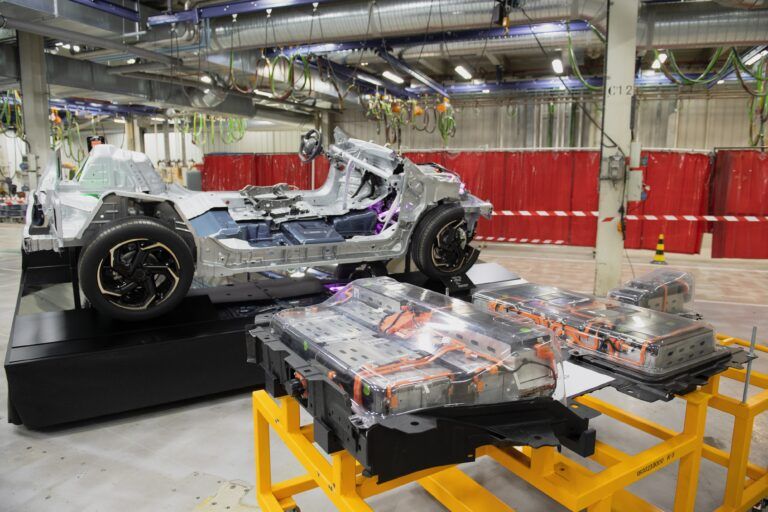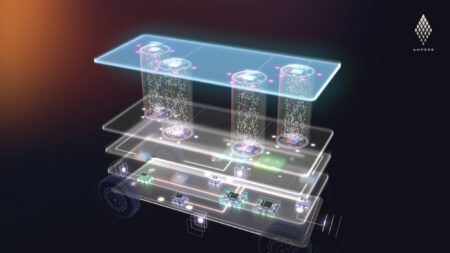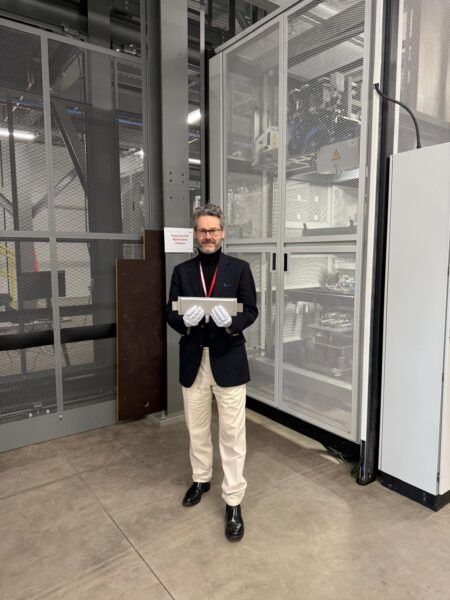Peugeot has lifted the lid on its growing team of technicians who are responsible for assembling and testing each battery that goes into its electric cars (100% electric or plug-in hybrid) and vans.
These experts represent Excellence, a key Brand value of Peugeot. They are specially trained before they join the European factories of the carmaker in Spain, Slovakia and France. Each battery is tested to ensure its reliability, performances and lifecycle.
Peugeot’s electrification is accelerating in 2022 with the new 408, which is set to strengthen the brand’s Plug-in Hybrid offering, also reinforced by the recently launched new 308. In 2022, more than 70% of the Peugeot range sold worldwide is electrified. In Europe, the brand’s electrified models represent one passenger car out of four in H1/2022, up from one out of every six in 2021.
By 2025, 100% of Peugeot model line-up will offer an electrified variant. This will require a substantial uplift in the number of batteries being produced. Peugeot estimates it will assemble up to 10,000 batteries a month for its car range by next year, and as many as 7,000 batteries a month for its LCV range.
It takes roughly 60 minutes for the skilled technicians to assemble each 50kWh battery unit (pre-assembled cells and components). 90 minutes are necessary for the larger 75kWh units. The team subjects each battery to a series of critical tests, allowing each unit to be guaranteed with an eight-year / 100,000 miles warranty policy for 70% of its charge capacity.
The testing process is mandatory to sign off the batteries for the assembly. The first test simulates operation of the battery in a vehicle to validate reliability, then a performance test stimulates the battery at full rate, with the last test a sealing test. The battery unit is pressurized by gas to check for leaks by monitoring pressure loss. A proper seal will prevent water or dirt from getting inside the battery cells and compromising its lifecycle or performance. Skilled operators work in the dedicated battery assembly workshops of five plants of the Stellantis Group: Vigo & Saragossa (Spain), Trnava (Slovakia), Sochaux & Mulhouse (France) and soon Hordain (France). Both electric and conventional combustion engine vehicles are assembled on the same line.
The technicians who test and assemble the Peugeot vehicles’ batteries come from Stellantis’ factories. They are selected on the basis of their electrification skills and are given month-long specialist training. As a consequence of the energy transition and of the increasing mix of electrified models, Peugeot and the wider Stellantis Group are increasing the number of technicians qualified to assemble and work on electrified vehicles.
Jérôme Micheron, Peugeot Product Director, said: “The electrification of the Peugeot range is a success: LEV (Low Emission Vehicles) models represent one out of four Passenger Car sales in Europe in the first half of 2022. Peugeot provides a wide range of electrified vehicles with the full-electric e-208 and e-2008. The New 408, the New 308 (hatch and SW) as the 3008 and 508 (fastback and SW) come with Plug-in Hybrid engines. The LCV offer is complete with 100% electric versions, with e-Partner, e-Expert and e-Boxer.”
Peugeot is strengthening its electrified vehicle range in 2022. The New 408 will come with two Plug-In hybrid powertrains, 180hp and 225hp from its launch. The New 308 offers these powertrains on the hatch and SW versions as well. Both new cars are built from an EMP2 platform evolution, which allows the implementation of a 100% electric motorization. The LCV range was completed at the end of 2021 by He-EXPERT, which combines both electric and Fuel Cell technologies.





